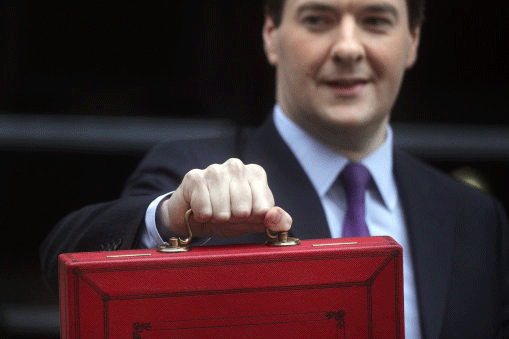
The Chancellor of the Exchequer yesterday announced a crackdown on UK residents tax avoidance, with the UK Government estimating that UK taxpayers hold £40bn in assets in Swiss bank accounts.
In his Autumn statement delivered to Parliament, the Chancellor George Osbourne presented his plans for tax repatriation through agreements between both Swiss and UK Parliaments.
The plan was "the largest tax evasion settlement in British history," said Osbourne.
It is expected to increase additional revenues by £2bn to £22bn a year, the government said.
UK Treasury estimated that £3.1bn alone in tax will be repatriated from Switzerland in 2013-2014.
How well do you really know your competitors?
Access the most comprehensive Company Profiles on the market, powered by GlobalData. Save hours of research. Gain competitive edge.

Thank you!
Your download email will arrive shortly
Not ready to buy yet? Download a free sample
We are confident about the unique quality of our Company Profiles. However, we want you to make the most beneficial decision for your business, so we offer a free sample that you can download by submitting the below form
By GlobalDataLevy on £40bn hidden in Swiss bank accounts
According to documents accompanying the Autumn Statement, an estimated £40bn of funds held by UK residents in Switzerland are affected by the new measures.
But funds hidden in Swiss banks can only be estimated because of the lack of information about the value of the assets held by UK citizens in Switzerland.
The Chancellor said he expected to receive £5bn over the next six years from the undisclosed Swiss bank accounts of UK residents, with a one-off levy applied to existing Swiss assets owned by UK residents. The rate will range from 21% to 41%.
The agreement also includes a withholding tax on future income and gains with rates ranging from 27% to 43%, based on income type; as well as a 40% inheritance levy applied to Swiss assets for UK investors and an enhanced exchange of information.
The breakthrough tax agreements come into force on 1 January 2013.
Britain claims lead on international tax evasion push
Osbourne said the UK was "leading the international effort to prevent artificial transfers of profits to tax havens", through the introduction of the UK’s first General Anti-Abuse Rule (GAAR), the development of significant new information disclosure and penalty powers targeting the promoters of aggressive tax avoidance schemes, and the closure of loopholes protecting hundreds of millions of pound.
Coutts head of tax trust & estate planning and executive director, Dominic O’Connell commented: "The fine dividing line between what is deemed acceptable and unacceptable tax planning was once reserved for the legal and accountancy world. This is no longer the case."
The Chancellor also announced he creation of a new HMRC unit to tackle offshore evasion and avoidance of inheritance tax using offshore trusts, bank accounts and other entities. Further details of the HMRC’s measures are due to be released on 11 December.
HMRC Affluent Unit’s expansion
As announced by the chief secretary to the Treasury in September 2012, the government is planning the extension of the HMRC Affluent Unit, which will include taxpayers with a net worth of £1m or more, Osbourne confirmed yesterday.
Grant Thornton UK head of tax Francesca Lagerberg commented: "It is important for anyone undertaking a transaction that spans into next April to be aware of the GAAR in case it impacts on elements of the transaction arising after April 2013."







